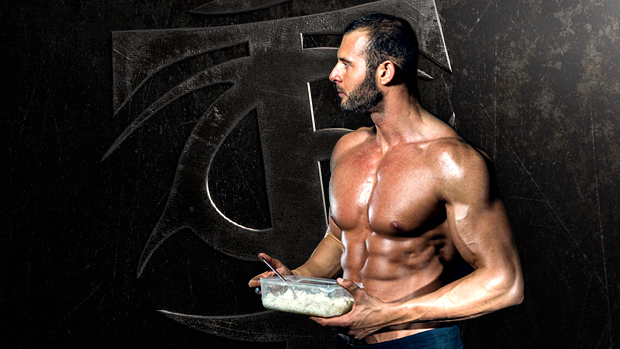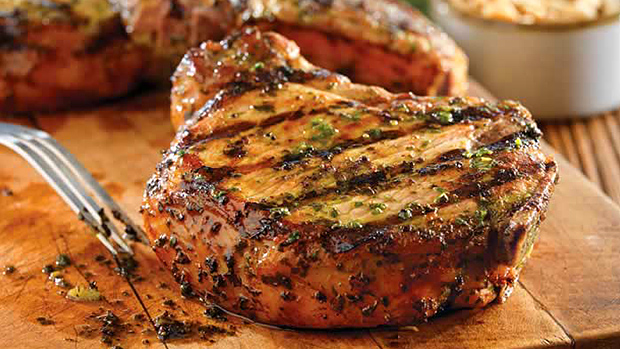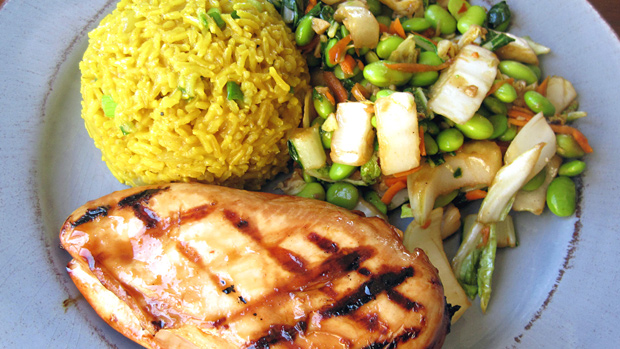The Question
Generally speaking, what's your philosophy on carbohydrates for lifters and athletes?
My general philosophy on carbs is that the leaner you are and the more active you are, the more carbs you should consume.
The pendulum for carbohydrate consumption with lifters and athletes has swung back and forth between both extremes. It's important for you to take the time to find out what works for your body, and to pay attention to the types and amounts of carbs you're eating. Notice how those change your performance and body composition instead of adopting blanket statements like "carbs make me fat."
Don't look at a lean and athletic person who's eating a very high carb or low carb diet and assume that their dietary approach is the reason they're lean and performing at a high level. It isn't necessarily their specific diet, but rather their dietary approach in relation to, and in sync with, their physiology. Mike Roussell, PhD
Lifters need carbs to build muscle, perform well, and feel awesome. But they also need to NOT be stupid about carbs.
The problem here is that damn on/off switch that most people have in their heads. That's the all-or-nothing way of thinking favored by people who don't like thinking very much. It's either:
- All carbs are Hitler! Carbs are a Russian conspiracy! Carbs gave me a wedgie in the 7th grade!
Or...
- Eat all the carbs, even the junk, because a calorie is a calorie! And calories in, calories out... or um, something!
In the wacky world of diet and nutrition, the pendulum always swings all the way to one side or the other, never stopping in the middle where common sense resides.
The low-carb crowd, some members of the paleo tribe, and the people who've taken "keto" to eating-disorder extremes, send out the wrong messages. While there's a time and place to reduce carbs for fat loss, it's seldom necessary to go zero carb. Just choose better carbs, and time them right.
What are better carbs? Well, here's my list:
Carbs to Consume
- Specialized workout nutrition supplements
- Rice. Yes, even white rice. Preferably even.
- Potatoes. All types.
- Beans. All types.
- Oatmeal and buckwheat
- Fruits and veggies
Carbs Not to Consume
Come on, you already know. You don't need a list of blatantly obvious crap. Making good carb choices is just common sense once you stop listening to the glassy-eyed diet cults out there. Chris Shugart
Carbs are good and you should eat them.
Many are too afraid of carbs for fear that they will get fat from the insulin fairy, which isn't true. Yes, if you eat too many carbs, your body composition can get worse. Too much of anything can have a downside.
Both fats and carbs are great fuels – it just depends on what you're doing. Ideally you want to be very metabolically flexible to use both fuels at the right times.
Carbs are the best fuel source for strength and power. They're anti-catabolic, and they bump up the most potent vasodilator in your body – insulin! Fat is great to power you through your day-to-day life, but it can't compete with carbs for performance in the gym.
How many carbs do you need? Sadly I can't give you your ideal number, but I can provide a range based on my experiences. Most hard training athletes will need a minimum of 200 grams a day, and much more on hard training days. And they won't need to go below 120 grams on off days. I've seen many who drop their carbs way too low on non-training days and end up in the "metabolic wasteland" where they're so low on carbs they feel like crap, and aren't low enough to be in a ketogenic state and use ketones.
Here's a typical template:
- Weight training day: Minimum of 200 grams to start. (The highest I've ever seen was an athlete eating 400 grams per day of carbs.)
- Off day or cardio day: About 120 grams to start.
Every two weeks, bump up your carbs on your training day by 50 grams and make note of your body composition (the mirror tests works) and your gym performance. Try to hit that sweet spot of great gym performance and body comp. Once you find it, ride that train as long as you can. Mike T Nelson, PhD
My philosophy on carbs is tied to my belief that people perform best when they have favorable body composition; and they have favorable body composition when they have optimal insulin sensitivity.
The more frequently and longer an individual trains, the more carbs they need to consume. And I prefer to time most carbs around the training window.
All my pre-intra-post-workout carbs consist of Plazma™ and/or Finibars™. I train on a daily basis because I prefer more frequent sessions instead of marathon sessions. These carbs range from 70-115 grams depending on the length of my workout.
Outside of the training window I keep net carbs (total carbs, minus fiber) to 60 grams or less, sourcing them from whole foods – fibrous vegetables, garbanzo beans, quinoa, berries, etc. Keep in mind the 60 grams of net carbs is a guideline since everyone handles carbs differently. You may need to go a little lower or higher.
Think in terms of mirroring a carb intake similar to that of a ketogenic diet. Don't freak out over the word ketogenic because this is only in regards to carbs outside of the training window. In fact, I encourage people to push towards keeping those non-training carbs on the low end.
This allows for a once per week higher carb day where you bump up the non-training carbs to 200-300 grams from sources like rice and oats. Athletes with low body fat will find this seven day cycle of a single higher carb day highly anabolic without wrecking their long-term body comp goals. Mark Dugdale

Carbohydrates are a tool, just like chalk, knee wraps, or lifting straps and anyone who eliminates them completely is likely doing themselves a disservice.
Carbs should be tailored to an individual, just like your diet or training plan. For athletes and bodybuilders, carbs can be used strategically and will help optimize recovery, exercise performance, hormones, muscle growth and more.
For those at the other end of the spectrum, like those with adult-onset diabetes or sedentary populations, reducing carbs can be a great strategy since it quickly lowers calorie intake and reduces their processed carb intake.
If you're a lifter or athlete, carbs aren't inherently bad, and ultimately they can either have beneficial or negative effects depending on key factors such as your insulin sensitivity, metabolism, activity level, goals, body fat, the amount of carbs you're eating, the type, your total calorie intake, and your personal preference.
To use carbs effectively, take a step back and assess their uses, benefits, and application to that situation. For most lifters, having carbs around workouts will enhance performance and recovery as part of a well-designed diet and training plan. Rudy Mawer
My philosophy on carbs for lifters depends on several things:
1 Your body composition.
Those with higher levels of body fat tend to do better on a carb-restricted diet. Their bodies aren't doing well with nutrient partitioning (using calories to build muscle instead of storing fat) and they often have crappy insulin sensitivity.
2 Your ability to metabolize carbs into glucose.
Some guys, especially the skinnier ones and those in great shape, are able to eat carbs in copious amounts and just fill right out. For the really scrawny guys, carbs ought to be their best friends in regard to weight gain. In fact, carbs should make up the bulk of their diet, with a macronutrient breakdown that's something to the tune of 60-30-10 (carbs-protein-fats).
3 What you're training or preparing for.
Someone training twice a day in prep for a show still isn't going to get as many carbs as someone training twice a day for a CrossFit competition. One is preparing for physique display while the other is preparing for performance.
If someone is preparing for performance then replenishing glycogen is exceptionally important. For a physique competition, it all depends on their ability to assimilate carbs into glycogen. Some people need more carbs and some need less.
4 Timing.
Even for the out of shape, I like to push the biggest intake of carbs into the post-workout meals, usually the two following training. It's been shown that even those that are type-II diabetic tend to have fairly normal insulin response to carbs after training. It's highly unlikely that someone is going to store carbs as fat post training. I mean, within reason. It doesn't mean you can shovel down 1,500 grams of carbs after doing a few sets of curls.
5 The duration and intensity of your training sessions.
A big leg or back day is going to get more carbs post-workout than an arm day or even a chest day. For legs and back it may be 100-120 grams of carbs in the post-workout meal. For less intensive training sessions or shorter ones, it may only be 50-80 grams of carbs.
6 The GI scale.
Despite some saying the glycemic index load changes with the inclusion of fats and protein, anecdotally I've found it does matter. Higher glycemic carbs, like jasmine rice or cream of rice, tends to fill most people out more, and are much easier to digest than brown rice or sweet potatoes.
With that said, my go-to for a while has been to have a higher GI carb sources in the post-training meal, then in the next meal move to a low GI carb source as they take longer to digest. Satiation is higher and tends to bring blood sugar down back to steady. In some cases I've had my own blood sugar crash after doing a hard workout then going right to high GI carbs. I like rotating the high GI and low GI meals in the post-training window to get this back in check.
7 Quality of sleep.
If your sleep sucks, then your degree of fat oxidation will be minimized. For those with sleep problems, carbs before bed tends to help with relaxation due to an increase in serotonin. So it's another thing I take into account from the athlete in order to maximize fat oxidation. If their sleep sucks, it'll be harder to get lean. Paul Carter
It could be explained by two sentences, which might seem somewhat contradictory at first:
- There are no essential carbohydrates.
- Carbs are a tool to create specific physiological responses in the body.
In nutrition, "essential" means that you must ingest something in your diet because your body can't manufacture it on its own. For example, there are some essential fatty acids that the body requires for optimal function because it can't make them itself.
But there's no such thing as an essential carbohydrate. That's because even if you don't consume any carbs the body can produce glucose by using amino acids (a process called gluconeogenesis). So if you consume enough protein you don't "need" carbs to maintain a normal blood sugar level. You can also produce fuel from fat. And if fat is high enough in your diet, you can produce ketones which can also be used for fuel. So, you don't "need" carbs to live and function.
But as serious lifters, simply "functioning" isn't enough for us. We want to perform at a high level, build muscle, and feel good. And to optimally accomplish these three goals most of us will need carbs. Not everybody will need the same amount, but most will do better with them.
If your goal is mainly to gain muscle, you'll need to add carbs, mostly around your workout. It increases mTor activation and lead to higher IGF-1 levels. Both of which are important to stimulate hypertrophy. Low-carb diets have been shown to lower IGF-1 levels. That might actually be a good thing when it comes to slowing down aging, but not so much if your goal is to gain muscle.
As far as feeling good, especially if your life is stressful, carbs can help by elevating serotonin, a hormone that helps you relax. I recommend carbs in the evening for those who have a lot of stress in their professional life.
To recap, remember these three things:
- The leaner you are, the more carbs you can ingest without repercussion. The leaner you are, the more insulin sensitive you are.
- If your goal is to build muscle you'll need more carbs than you would if your main objective was to get leaner.
- If you overproduce cortisol because of stress, then carbs can help you. Christian Thibaudeau
Carbs are the best energy source for performance, and when timed correctly can be powerful for recovery also.
The most important thing is having carbs in and around your workout. When you're talking about performance and hypertrophy, this is crucial. Intra-workout is a no brainer and I'm not the first here to rave about the benefits of Plazma™. It literally took my own training from 1.5 to 3 hour sessions without losing intensity or energy, and improved my recovery significantly. This is where I get the biggest hit of carbs in my day, sometimes up to 200 grams of carbs in one session.
Post workout is the second most important place to utilize carbs and the focus here is recovery and building (or rebuilding). Pre-workout is the third most important place for more immediate energy before a session.
These are the three times in the day (if gaining muscle and improving performance are your goals) where you do want to spike your insulin a little by eating well-timed carbs. Dieting for fat loss is a little different when it comes to both carbs and caloric intake, but I'd still time the carbs I'm having the same way.
As for the rest of the day, I keep carbs low to moderate (25-50 grams per meal) to keep insulin levels as stable as possible throughout the day. At times when you aren't active, this is the goal so that the body has less chance to store the carbs as fat. Breakfast being the one exception, since you've just had a long night of fasting which can put you in a catabolic state.
As for carb sources, these are the best: oats, white rice, white potato, quinoa, and yams. Fruit around workout time isn't horrible but should be very calculated.
All of this is assuming you're making appropriate caloric and macro choices for your goals. Remember that if you're opting for a high-carb diet, you'll need to keep fats relatively low and just utilize those for basic healthy body function (30-50 grams per day is a good starting point). Amit Sapir





